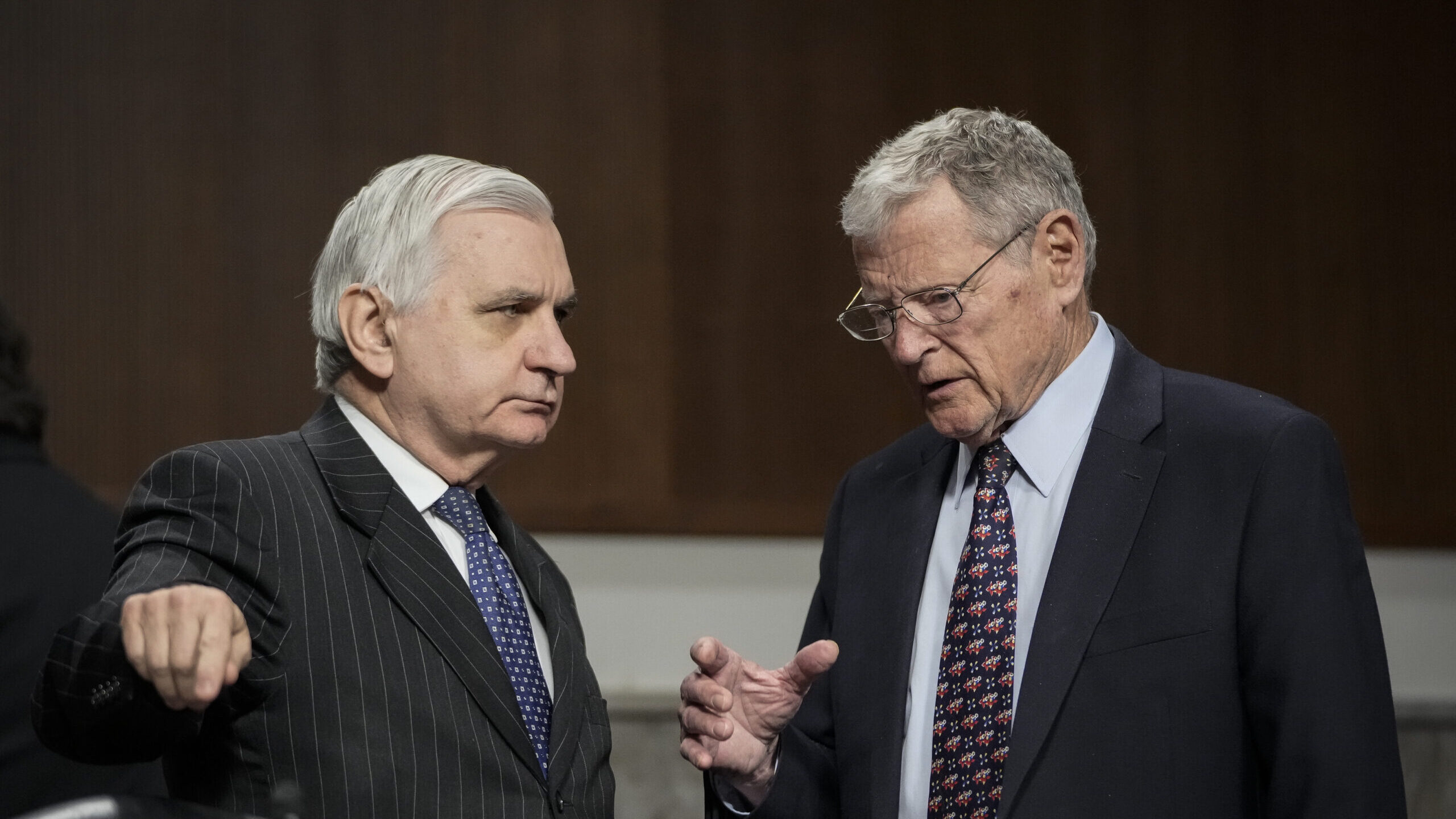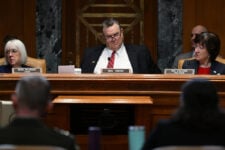
(L-R) Committee chairman Sen. Jack Reed (D-RI) talks with ranking member Sen. James Inhofe (R-OK) before the start of a Senate Armed Services hearing on Capitol Hill March 15, 2022 in Washington, DC. (Photo by Drew Angerer/Getty Images)
WASHINGTON — The Senate tonight passed the National Defense Authorization Act (NDAA) with a 83-11 vote, sending the annual defense policy bill to the desk of President Joe Biden.
On Dec. 6, the four leaders of the Senate and House Armed Services Committees released the compromise NDAA, with a topline of $857.9 billion for national security, including $816.7 billion for the Pentagon and $30.3 billion for nuclear activities in the Department of Energy. That total is an increase of $45 billion over what Biden’s budget requested.
The House passed the language on Dec. 8, but the process slowed in the Senate while Congressional leadership figured out a way to keep the federal government funded.
The NDAA is named after Sen. Jim Inhofe, the Oklahoma Republican who is retiring at the end of the current Congress.
“Throughout my congressional career, I have been grateful to watch Congress put politics aside and vote to pass the National Defense Authorization Act every year. I’ve always said there are two things that we should be doing in Congress: infrastructure and defense,” Inhofe said in a statement. “This is the most important bill we do every year and the overwhelming majority of my colleagues agree — that’s why it has become law for 61 years in a row, and this year we are one step closer to the 62nd year.”
Inhofe also thanked his colleague, SASC chairman Jack Reed of Rhode Island. Reed, in turn, said naming “this bill in honor of Ranking Member Inhofe is a fitting testament to his leadership and partnership on the Armed Services Committee, and his many decades of dedicated service to the people of Oklahoma, our servicemembers, and the nation.”
HASC pushes for reciprocity guidance for cloud computing in draft NDAA language
The legislation proposes that if one office in the department officially deems a “cloud-based platform, service, or application” is sufficiently cybersecure to use, then all parts of DoD can accept this ATO.


























